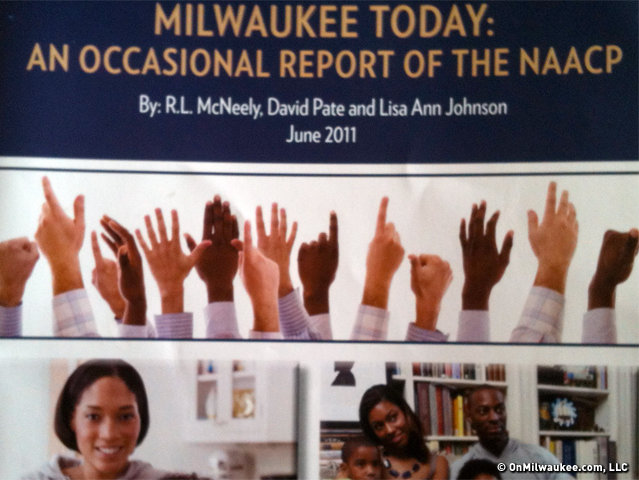What's the real picture on joblessness in Milwaukee?
At a conference I attended this past weekend titled OneMilwaukee and sponsored by the NAACP, Mayor Tom Barrett estimated that there are 30,000 people out of work presently and up to 20,000 jobs lost in the city since 2007. He went on to describe the dilemma he faces as mayor.
People in one community talk about the devastating lack of jobs. Then he'll hear from employers in the city who say they cannot fill the openings they have.
OneMilwaukee conference-goers were reminded of data released recently in "Milwaukee Today: An Occasional Report of the NAACP:"
- More than half of all African American males in Milwaukee between the ages of 16 and 64 are unemployed.
- In 2009 there were more than 70,000 job seekers in Milwaukee for fewer than 10,000 job vacancies.
- Milwaukee employers are more likely to respond to a white job seeker with a criminal record that a black job seeker without record. (See ac360.blogs.cnn.com.
- Milwaukee ranks last among 52 major cities in the forecasted role of minority entrepreneurs.
Business leaders like Tim Sheehy, president of the MMAC, claim, "...We don't have a jobs crisis in Milwaukee, we have an education crisis." But OneMilwaukee's overview points to a more varied and urgent set of solutions.
The keynote speaker at the conference, Dr. Keenan Grinnell, Vice President and Dean of Diversity at Colgate University, affirmed that Milwaukee needs go far beyond some tweaking, advocating for economic development at the level of a Marshall plan.
Dr. Grinnell outlined a number of steps with the goal of creating inclusive prosperity and eliminating the wealth gap in the city. He maintains that the business environment is not inclusive, and that there is a brain drain along with a lack of multi-ethnic approaches to solving the existing economic devastation.
Among the solutions Dr. Grinnell called for was creation of entrepreneurial ecosystems connected to job creation, job and skill training in poor communities, and training all children at high levels.
This effort by the NAACP is refreshing and bold.
It seems high time for Milwaukee to come together, as OneMilwaukee, to create economic equality and justice for all communities.
studies and serving as an administrator in MPS for nearly two decades. His two sons are both MPS
graduates. Larry is an editor of Rethinking Schools and an adjunct at Marquette's College of Education.
He and his wife, Ellen Bravo, live on Milwaukee's East Side.



